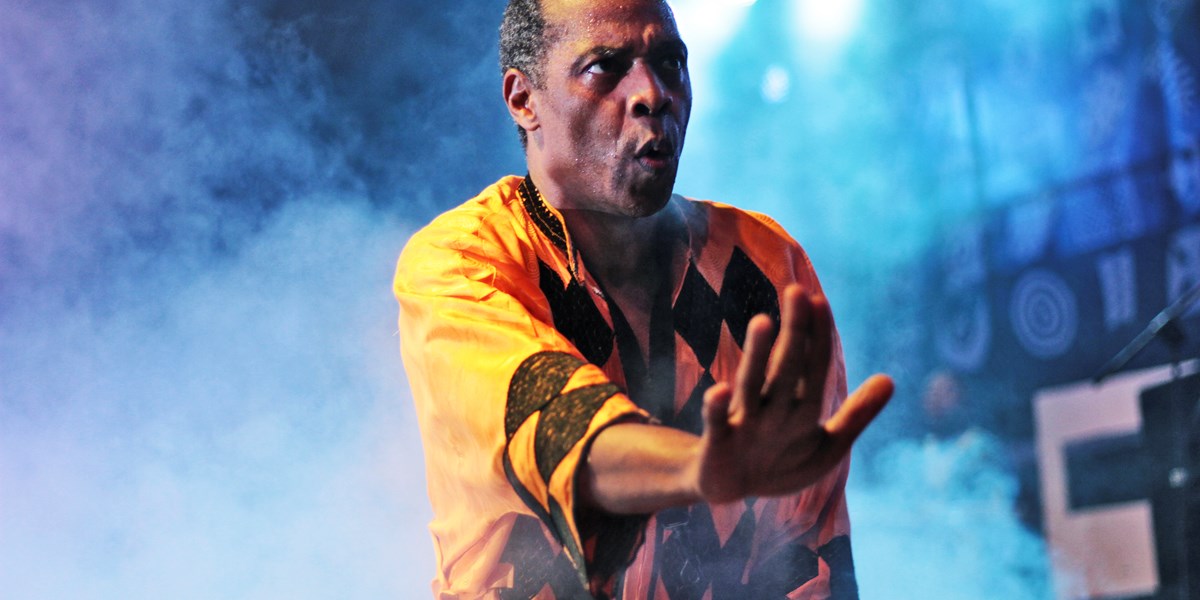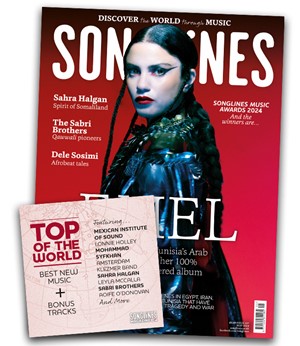Thursday, May 31, 2018
Femi Kuti review – ‘I do not want to be my father!’
Femi Kuti brings his usual vivacity and fervour to a transfixed crowd at Islington Assembly Hall, supported ably by the London Afrobeat Collective.

©Optimus Dammy
Femi Kuti
Islington Assembly Hall, London, May 30
Femi is the oldest son of Fela Anikulapo-Kuti, the father of Afrobeat, and the grandchild of political campaigner and women's rights activist Funmilayo Ransome-Kuti. The politics and music in his blood shine through in his performances, but as any musician will tell you, natural talent is only part of the craft: hours and hours of practise and concentration are what creates a truly great musician. The discipline and earnestness with which Femi performs was fantastic to watch. Femi played his saxophone standing still; he wasted no superfluous energy on unnecessary showmanship. He stood with his eyes closed, feet together, shoulders hunched, and lets the music flow.
His band, the Positive Force, were also the image of discipline. Their tight grooves were unfaltering, and they seemed quite unreliant on Femi for direction. His dancers-cum-backing singers were filled with energy, dancing, percussing and singing at the top of their lungs throughout, dressed in ornately beaded traditional costumes. Unfortunately, his horn section were shrouded in darkness at the back of the stage (despite the relatively large venue, it was still a tight squeeze to fit all 13 musicians on stage) but, regardless, their distinct harmonies cut through the music, with the hooks to each song rolling round and round over harmonic changes. Their arrangements had hints of jazz, big band (that characteristic downwards glissando was apparent in a few places) and of course old school Afrobeat. A particular highlight for myself was the bassist, who instead of feeling the need to secure the groove, in a band of this caliber, could improvise and fill where he liked.
Responding to shouts from the crowd to ‘play ‘Zombie’!’, Femi replied, ‘I do not want to be my father! Shall I eat like him, drink like him, [make love] like him?!’ This was met with cheers, and he continued with a wink to the audience, ‘I am here to showcase the new album.’ He does not want to be his father, and he isn’t. He spent most of the performance standing behind a state-of-the-art reconstruction of the Hammond organ – a staple of African dance music in many different countries. His direction to the band was in minute hand gestures, and his dancing, rather than being the flamboyant, crazed movements of his father, were small agitations, almost involuntary, as he roamed the stage. He played an extended version (or perhaps a completely usual one in the context of grandiose Afrobeat structures) of the title-track of his new album One People, One World. He had the crowd singing along with him in somewhat sketchy two part harmony. He also directed a single clap on the first beat of every bar – perhaps a good choice given the notorious inability of British audiences to clap successfully on the two and four of any music.
A particularly special moment in the show was Femi’s saxophone duet with his son. Femi on alto and 21-year-old Made on tenor, the band hushed to allow the piercing shrieks of (surprisingly crunchy) two-part interlocking patterns to shoot through the crowd. The pair settled occasionally on the same tones, allowing the tuning differences in their instruments to reverberate, before whirring off in different directions, replying to each other’s melodic embellishments with progressively faster, more technically challenging runs.
Near the end of the concert, at about 22:45, stage hands were edging onto the stage, tapping their watches at the musicians, with very little acknowledgment. Security personnel were discussing how they could possibly get everyone out by 23:00. Regardless, Femi & The Positive Force played on. Femi had the whole audience stomping from left to right in a choreographed pattern, demonstrated by his dancers. Sweat flew from the musicians hands and faces, and by the end of the concert, the audience trooped out happily with equally sweaty, but still smiling, faces – we had been briefly transported to the Afrika Shrine.


